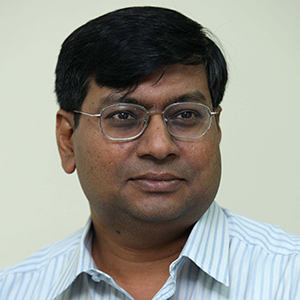As the flux in national affairs over much of the last decade continues to impact our lives in many unsettling and unexpected ways, calls for a national revival have been sounded from time to time both by prominent people as well as humble folk who fear that we may descend into a nadir of discord unless we find a new way forward as a nation.
Our collective angst over the fractious state of race relations, the hardening of religious attitudes, polarisation of political alignments and a long list of economic, developmental and social challenges signal the need for some serious soul-searching among Malaysians to ensure a viable future for all.
This apprehension about Malaysia’s dimming prospects has spread into the common awareness, as revealed especially in the new media, both through the reportage of events and statements and the stream of public opinion that runs parallel to the coverage of the emerging issues and the views expressed about them.
It is not surprising that a Merdeka Center opinion poll conducted in October 2014 showed that a significant 47% of those who were surveyed felt that Malaysia was heading in the wrong direction, against 39% who said it was on the right track.
One aspect of the public outlook that catches our attention is a pervasive sense of negativity in the air, whatever the issue at hand.
If it concerns race relations, the most jarring views and chauvinistic positions tend to attract the greatest publicity and noise.
The name-calling by a Gerakan local leader that led to his suspension from the party last October comes to mind, if only to illustrate the underlying animosity that the label “pendatang” (immigrant) carries if it is used on any Malaysian.
If religion is the subject of debate, intolerant and abrasive attitudes become the focal point. Perhaps the most distressing example of this confrontation is the long-drawn court battle between the government and the Catholic Church over the use of the word “Allah”, a contestation that hollows out the essence from religion, which teaches us the essential unity of all life.
If educational achievement is being discussed, a right royal row ensues about whether standards have declined abysmally or Malaysia’s scholars are world beaters in their own right.
Somewhere in all that noise and fury is a sense that we need to take pause to get our bearings right.
If we step back a little from the fray, it becomes clear that there is a vital lesson that must be learnt from the race-based division of society that has dictated the tone of our national life to date.
After well over five decades of trundling along on the track of ethnic consciousness, we now have a population that is distinctly polarised, unusually sensitive and increasingly testy on inter-communal issues.
To carry on in this vein would surely be to wilfully inflict harm on ourselves.
However, extricating ourselves from this delicate situation will by no means be an easy task.
It will involve letting go of our current ethnic personas, and with it the certainty of our identities as distinct communities and all that distinguish us from others in our midst.
This must not be mistaken to mean the abandoning of all cultural identification in a homogenous melting pot, but a simple shift in our point of focus away from our state-sponsored preoccupation with race, religion and identity towards an open acceptance of diversity as an inherent element of our national character.
All constitutional provisions for special rights and privileges would remain untrammelled but gain fresh life in the context of a healthily diverse society.
Above all, it will demand of us a strong belief in the essential goodness of humanity, that our fellow citizens will by and large act in the common interest and not edge us out of our turf when we open up to the idea of a non-communal Malaysian identity.
Ironically, this will seem counter-intuitive to our sense of self-preservation until we can convince ourselves that instead of losing out, we have all the world to gain by stepping out of our little ethnic prisons.
Ultimately, the argument for a new beginning will be won by the evidence of our growing dysfunctionality if we carry on in the current trajectory.
To move forward on this epic national journey, there must be a willingness to bury the past with all the transgressions of misguided chauvinism and the hurt feelings that go with it.
This will be by no means easy, but as in any relationship, imperative for healing to take place.
As always, in any great undertaking, it will require people of character and conviction to step forward to become torch-bearers and advance the cause. Very often, we have to look deep within ourselves for the motivation to break with the herd and chalk a new path to a better tomorrow.
The numerous promising initiatives with this theme that have already sprung up in the past few years go to show that the idea of a Malaysian consciousness that does not shackle us to a narrow ethnic identity is one whose time has come.
We can begin to bring that day closer by adopting a race-free identity in our own personal, professional and social lives.
Outgrowing the cultural indoctrination of racial superiority or supremacy, often perpetrated by authority figures in our lives, is an important first step in that mission. – May 16, 2015.
* This is the personal opinion of the writer or publication and does not necessarily represent the views of The Malaysian Insider.


Comments
Please refrain from nicknames or comments of a racist, sexist, personal, vulgar or derogatory nature, or you may risk being blocked from commenting in our website. We encourage commenters to use their real names as their username. As comments are moderated, they may not appear immediately or even on the same day you posted them. We also reserve the right to delete off-topic comments